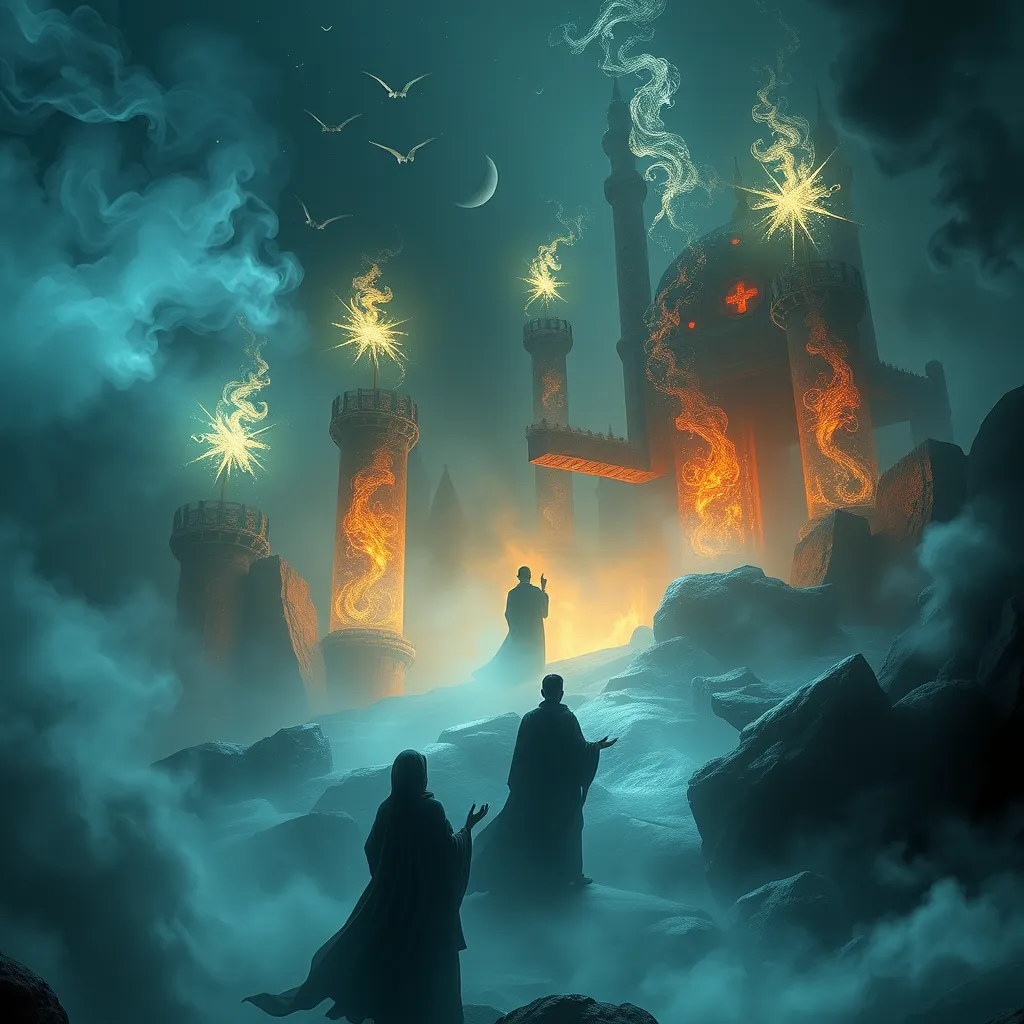Jinn and the Power of Words: Exploring the Language of the Otherworldly
I. Introduction
In Islamic theology and various cultural traditions, Jinn are supernatural beings created from smokeless fire, possessing free will and a range of attributes that allow them to interact with the human world. They are often viewed as intermediaries between the earthly realm and the spiritual domain, embodying both benevolent and malevolent qualities. Their portrayal varies widely across different cultures, making them a fascinating subject of study.
The significance of language in the realm of the supernatural cannot be overstated. Words possess immense power; they can heal, summon, or even curse. This article aims to delve into the connection between Jinn and the power of words, exploring how language shapes our understanding of these otherworldly beings and the dynamics of their interactions with humanity.
II. Historical Context of Jinn in Literature and Folklore
The origins of Jinn can be traced back to pre-Islamic Arabian culture, where they were believed to inhabit desolate places, such as deserts and ruins. Ancient Arabs viewed them as spirits that could influence human lives, leading to a rich tapestry of stories and beliefs surrounding their existence.
With the advent of Islam, Jinn narratives evolved significantly. They are mentioned extensively in the Quran and Hadith, with the Quran explicitly stating their creation and purpose. The Quranic depiction emphasizes their free will and accountability, similar to humans. Jinn are portrayed as beings capable of both accepting faith and rejecting it, further complicating their role in Islamic belief.
Globally, Jinn have found their way into various folklore and literature, adapting to local cultures and beliefs. From the tales of the Arabian Nights to contemporary novels and films, Jinn represent a bridge between the known and the unknown, captivating audiences with their enigmatic nature.
III. The Nature of Jinn and Their Communication
Jinn possess unique characteristics that distinguish them from other supernatural entities. They can change their shape, become invisible, and travel at incredible speeds. The attributes of Jinn include:
- Shape-shifting abilities
- Immense strength
- Intelligence and cunning
- Ability to possess or influence humans
Communication with Jinn can take various forms, including spoken language, signs, and symbols. They can often understand human languages and may communicate in several ways:
- Verbal communication: Directly speaking to individuals.
- Non-verbal communication: Using signs or omens to convey messages.
- Symbolic communication: Manifesting through dreams or visions.
Intention and meaning play a crucial role in Jinn communication. The words spoken, whether in a summoning ritual or casual conversation, carry weight and significance, influencing the nature of interactions. Understanding the intent behind the words can determine the outcome, whether it leads to a positive or negative experience.
IV. The Power of Words: Linguistic Influence in the Otherworldly
Across various cultures, the concept of “words as spells” resonates deeply. Language is seen as a conduit for power, capable of invoking or banishing Jinn. Specific phrases, prayers, or incantations are believed to hold particular significance:
- Prayers for protection against malevolent Jinn.
- Incantations used to summon benevolent Jinn for guidance.
- Ritualistic phrases aimed at establishing communication.
The psychological and spiritual impact of language on individuals engaging with Jinn cannot be overlooked. The act of speaking, whether in fear or reverence, can shape the outcome of an encounter. Many practitioners believe that the emotional state and clarity of thought during communication can affect how Jinn respond.
V. Rituals and Practices Involving Jinn
Throughout history, various traditional practices have emerged for summoning and communicating with Jinn. Some of these rituals include:
- Using specific incense or offerings to attract Jinn.
- Reciting sacred texts or verses from the Quran as part of a protective charm.
- Performing rituals during certain lunar phases believed to enhance spiritual connections.
The significance of sacred texts and incantations in these rituals cannot be overstated. The Quran, in particular, is often recited for protection against malevolent Jinn, as its verses are believed to have inherent power. However, ethical considerations come into play when engaging with Jinn, as improper practices can lead to negative consequences.
VI. Contemporary Interpretations of Jinn and Language
In modern media and popular culture, Jinn have taken on new forms, often depicted in films, books, and television shows. This evolution reflects changing perceptions of Jinn and their linguistic attributes. They are often portrayed as either helpful beings, like the genie in Aladdin, or terrifying entities that wreak havoc on unsuspecting individuals.
Social media and digital platforms have also contributed to the discourse surrounding Jinn. Online communities share experiences, rituals, and interpretations, leading to a resurgence of interest in Jinn mythology. This digital age has transformed how individuals engage with these ancient beliefs, making them more accessible to a global audience.
VII. Case Studies: Personal Experiences with Jinn and Language
Anecdotal accounts of encounters with Jinn provide valuable insights into their nature and the communication methods employed. Many individuals share stories of experiences ranging from benign interactions to distressing encounters, often emphasizing the language used during these moments.
Analysis of the language in these experiences reveals patterns and cultural variations. For example, individuals from different backgrounds may use distinct phrases or prayers when addressing Jinn, reflecting their cultural beliefs and practices. The outcomes of these interactions also vary, influenced by the language employed and the context in which it is used.
VIII. Conclusion
In summary, the exploration of Jinn and the power of words reveals a rich tapestry of beliefs, practices, and cultural interpretations. The significance of language in the supernatural realm highlights its potential to shape interactions with these enigmatic beings. As society continues to evolve, so too does the understanding of Jinn and their place within the human experience.
Reflecting on the continuing relevance of Jinn in contemporary society, it becomes evident that they serve as a reminder of the complexities of belief, language, and the unseen forces that may influence our lives. Future research and exploration into the field of supernatural language will undoubtedly yield further insights into the intricate relationship between humans and the otherworldly.



